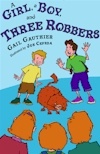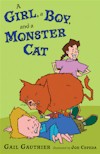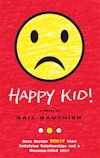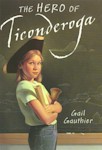In our extended family, we have people trying to get started on careers, to stay in their new careers, to hunt for first homes, and to stay afloat in construction- related professions. So here at Chez Gauthier we do think quite a bit about what's going on in the economy and, I'm sad to say, how it impacts us and not just all those people we read about in the press.
So when I read the first line in
Wrapping Up Bologna, about the Bologna Children's Book Fair, I thought, Doesn't this sound as if it could be a good thing for people like me? The article starts out, "The state of the U.S. economy hung over this year’s Bologna Fair, as American publishers found the market tough for buying, but great for selling." In a related
article, also in
Publisher's Weekly, an American publisher said, "For selling books, I say ‘Thank you, George Bush’ every day. But I would not want to be a European rights director selling to the U.S. right now."
What's going on, as I understand it, is that American rights for European books are pricie for us to buy now, but American rights are cheap for Europeans to buy. Our stuff is selling, but we're not buying as much as we used to.
I know that in the greater scheme of things, the world of literature suffers. Yes, I do want to be exposed to books from all over the world. But in terms of Gail, an American writer who needs to sell books, doesn't this mean that 1. Foreign rights to my most recent books have a better chance of selling? (It has been a few years since anyone has snapped up rights to my books, and I do have a new one coming out this year.) 2. Fewer foreign books coming into the U.S. market means less competition for buyers and readers here in this country? (Though, come on, we're still talking mind-boggling numbers of American books being published. I don't seriously expect to see any jumps in my sales because fewer European books are being translated into English and sold here. I'm just looking for a silver lining. For somebody. Anybody, but particularly for me.)
Well, I only took one baby economics class when I was in college, and I don't remember it having anything to do specifically with publishing.
Other
Bologna news:
Horror may be the new fantasy.
There's supposed to be a lot of interest in books about humor with boy characters, which, you know, just happens to be my stock-in-trade.
Evidently in France publishers are being overwhelmed with electronic submissions.
And get this--Eddie Gamarra, who is with a management/production company was quoted as saying, "Some authors report that editors pressure them to tone down the prominence of adult characters in children’s lit. Hollywood needs castable roles for bankable actors. There are very few bankable child stars. This issue was another big point of conversation as book folks ask me to explain what the heck Hollywood is looking for and why."
This is so creepy. Editors of children's books are
supposed to pressure their authors to tone down adult characters because they are writing...stay with me here...
children's books. What is going to happen to children's literature if books are written not for kid readers but for Hollywood producers who are looking for adult characters in order to cast adult actors? Come on, just write a screenplay in the first place.
Though, this might explain why we got an inquiry from a production company about
Saving the Planet & Stuff just on the basis of the
Kirkus Review's review. That book did have a couple of great adult characters. Though, perhaps, not great enough, since no sale was made.
Well, I've never been all that interested in the Bologna Children's Book Fair. But after reading these two articles, I'll be paying more attention in the future.
Labels: Marketing, publishing







